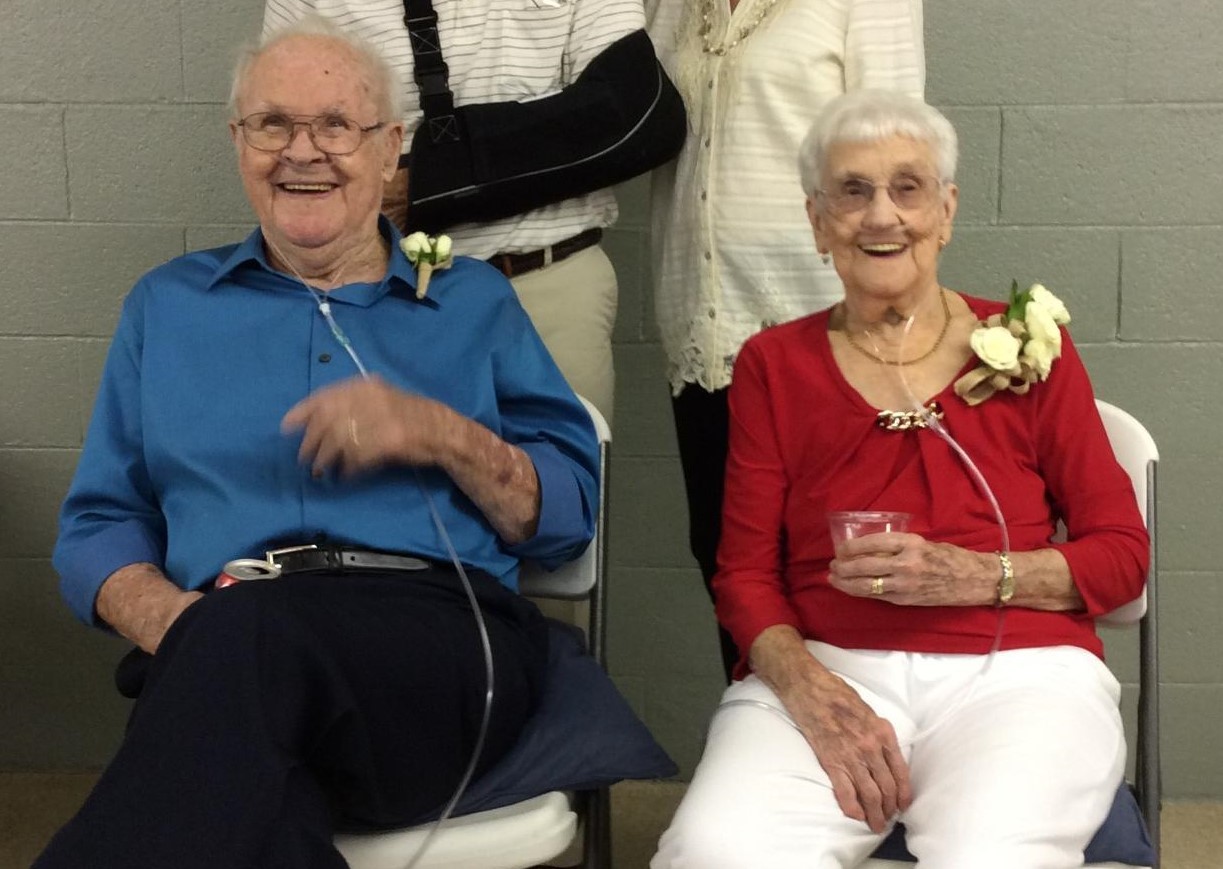Halls guy Arnold Jones didn’t overthink it. He and some 160,000 of his fellow soldiers just stormed the beaches of Normandy to liberate France and chase some Germans back to their own country.
It was D-Day, June 6, 1944. President Trump visited England last week to observe the 75th anniversary of this significant turning point in World War II.
From Wikipedia: The Normandy landings were the largest seaborne invasion in history, with nearly 5,000 landing and assault craft, 289 escort vessels and 277 minesweepers participating. Nearly 160,000 troops crossed the English Channel on D-Day, with 875,000 men disembarking by the end of June. Allied casualties on the first day were at least 10,000, with 4,414 confirmed dead. The Germans lost 1,000 men. Civilian casualties on D-Day and D+1 are estimated at 3,000.
Arnold Jones and his brothers, like most young men in East Tennessee, joined the military or were drafted.
Arnold signed up in 1943, did basic training at Fort Bragg, N.C., and was shipped out from a town in Maine named for Myles Standish. He was headed overseas.
Jones stayed in England for about six months, preparing for the invasion. He was the No. 1 gunner in his group before D-Day. Previously he was a telephone man who “ran wire.”
“We always had something going on,” he said. Once he flipped a Jeep into the English Channel when he ran over a bomb crater. “Luckily, the tide was out.”

Arnold and Cora Jones celebrate their 50th anniversary.
After the invasion, the American and British troops pursued the Germans inland. Jones led a group that captured 250 German soldiers who were camped in a tunnel. It was not a firefight. The Germans waved a white flag. One guy was taken from an outhouse.
Jones said he was the first man into the tunnel. He was looking for papers. He found mattresses and not much else.
Until then, Jones had escaped injury. But his luck ran out. While on a reconnaissance mission with a first lieutenant, the men heard gunfire. The officer hit the ground, but Jones stayed on his feet. Bam. A German shot the radio off his hip, wounding him. “The lieutenant said, ‘Stay here. I’ll go get a medic.’ But I said no. If he was leaving, I was leaving.
“He dragged me about three-fourths of a mile until we got out of the fighting.” Jones was taken to England for treatment. He required two surgeries and continues to take quarterly shots to relieve the pain and stiffness. “I got well enough to carry a gun and went back.”
He encountered several American prisoners of war. “They looked like skeletons.” Jones said he was a first sergeant in the field, but ranks were frozen and he was discharged as a corporal. Asked about the military leadership, he said, “Patton wasn’t fit to be over a dog, but Eisenhower was the man. He stayed right in there. … We had good officers and good soldiers. They all treated me good.”
The scariest thing he saw? “Those screaming meemies,” a kind of German artillery on wheels that made a shrill screaming sound when fired. Jones remembers hiding behind a hedgerow as six tanks thundered toward him, “They were yelling and screaming.” And he said country boys from East Tennessee had a distinct advantage in living off the land. “Those Yankees weren’t worth a damn. They would take an axe and act like it was a baseball bat.”

Cora and Arnold Jones, circa 1947
He and his three brothers came home intact. He landed in New York, took a train to Knoxville and caught a cab for home. His family lived on Fortner Lane, right off Emory, near Jones’ current home.
Jones, 94, is a rock-solid Republican and a founding member of Hilltop Baptist Church. He married Cora Russell on his return home. He remembers trading horses and mules with guys in the community and grinding cornmeal at Fred Griffin’s Mill on Pedigo Road. He worked as a welder at Dempster Brothers for 31 years and raised a family. A son and daughter, Dennis Jones and Fran Houser, are members of the Halls Business & Professional Association – which is how I was honored with a visit to a legitimate World War II hero on D+1, 75 years after D-Day.



